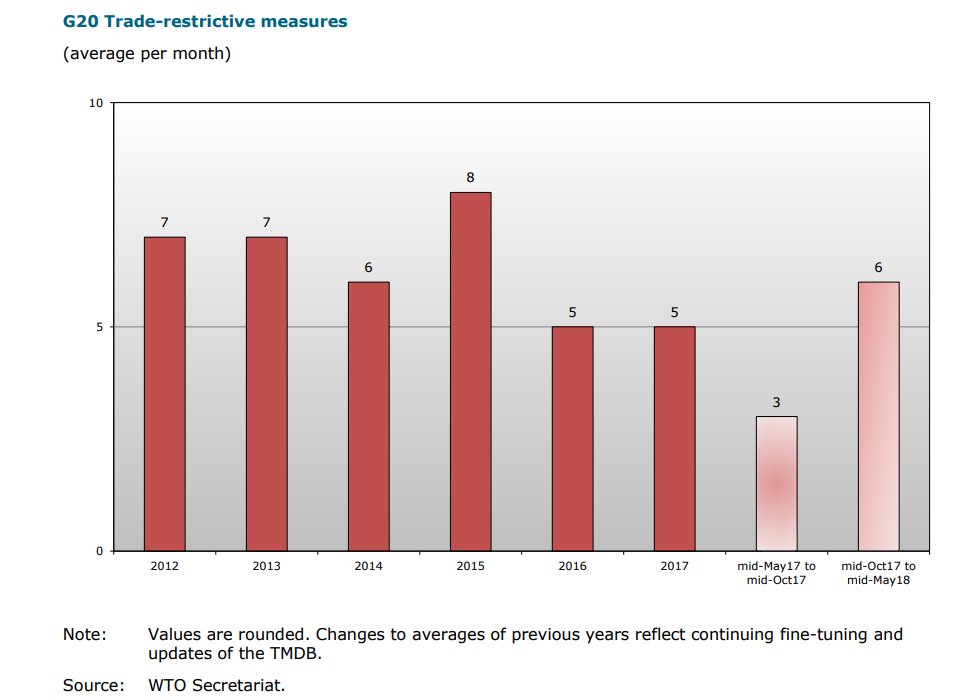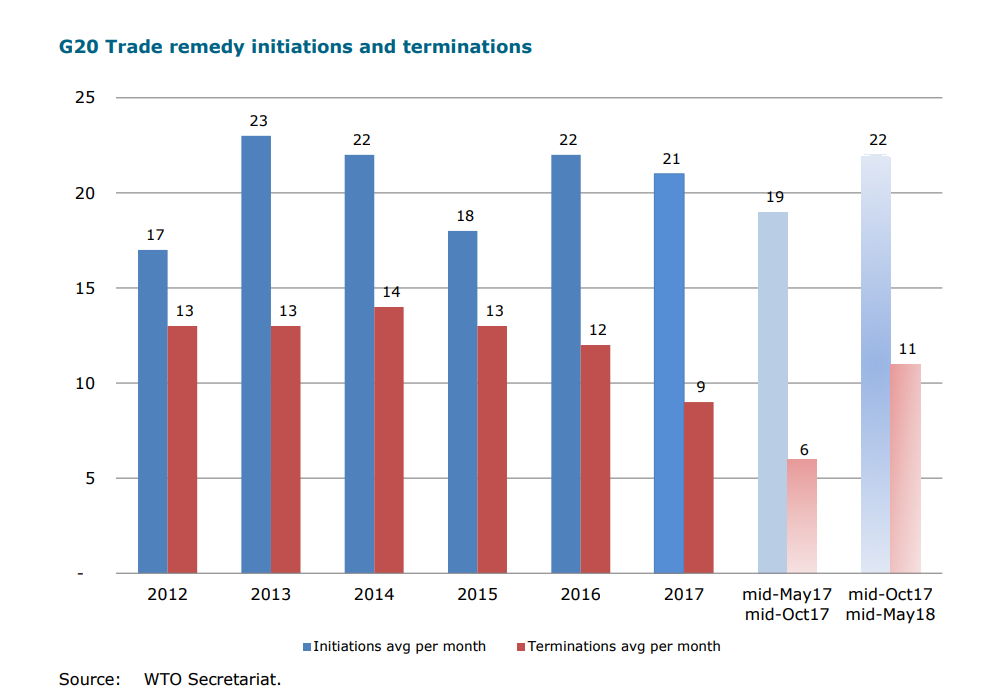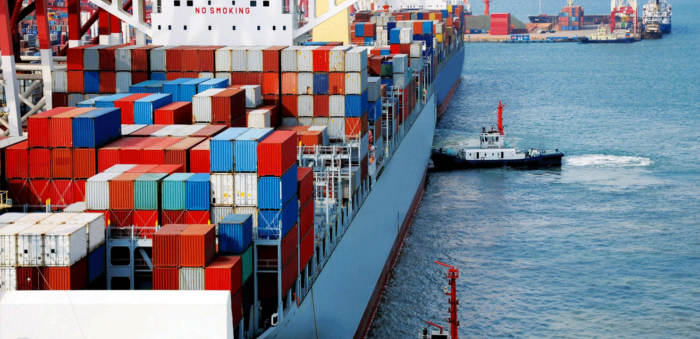The WTO’s nineteenth monitoring report on Group of 20 (G20) trade measures, covering the period from mid-October 2017 to mid-May 2018, shows that new trade-restrictive measures from G20 economies have doubled compared to the previous review period.
The report also shows that G20 economies continue to implement trade-facilitating measures, with the rate increasing slightly. These findings should be of ‘real concern’ to the international community, noted Director-General Roberto Azevêdo.

Key Findings
- G20 economies applied 39 new trade-restrictive measures during the review period, including tariff increases, stricter customs procedures, imposition of taxes and export duties. This equates to an average of almost six restrictive measures per month, which is significantly higher than the three measures recorded during the previous review period.
- G20 economies also implemented 47 measures aimed at facilitating trade during the review period, including eliminated or reduced tariffs, simplified import and export customs procedures and reduction of import taxes. At almost seven trade-facilitating measures per month, this is marginally higher than the six measures recorded in the previous period.
- The estimated trade coverage of import-facilitating measures (US$82.7 billion) is higher than that of import-restrictive measures (US$74.1 billion) during the review period, but is approximately half the trade coverage reported for these measures during the same period in 2016-17. Moreover, the trade coverage of import-restrictive measures is more than one-and-a-half times larger than that during the same period in 2016-17.
- On trade remedy measures, the review period saw a slight increase in initiations of investigations by G20 economies and a significant increase of terminations, compared to the previous period. Initiations of trade remedy investigations represent almost half (49%) of all trade measures recorded during the review period. The trade coverage of trade remedy initiations recorded in this Report is estimated at US$52.3 billion and is significantly higher than in the two previous G20 Reports. The trade coverage of trade remedy terminations recorded in the review period is estimated at US$6.2 billion.

- At a juncture where the global economy is finally beginning to generate sustained economic momentum following the global financial crisis, the uncertainty created by a proliferation of trade restrictive actions could place economic recovery in jeopardy. The multilateral trading system was built to resolve such problems and it has the tools to do so again. However, further escalation could carry potentially large risks for the system itself. Its resilience and functionality in the face of these challenges will depend on each and every one of its Members. The G20 economies must use all means at their disposal to de-escalate the situation and promote further trade recovery.
Mr. Azevêdo noted:
Additional trade-restrictive measures have been announced in the weeks since this reporting period and therefore the deterioration in trade relations may be even worse than that recorded here. This continued escalation poses a serious threat to growth and recovery in all countries, and we are beginning to see this reflected in some forward-looking indicators. I urge G20 leaders to show restraint in applying new measures and to urgently de-escalate the situation. I will continue working with the G20 governments and all WTO members to this end.
Explore more herebelow:





























































